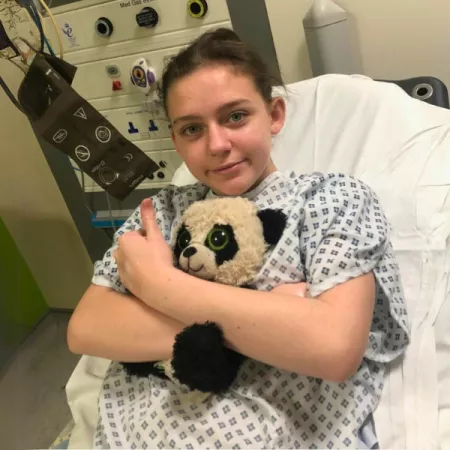1 in 3 children with epilepsy have seizures that cannot be controlled by medication. These seizures pose serious health risks and significantly impact the quality of life. Currently, in the UK, the reasons why some children develop epilepsy and why some tragically lose their lives to it remain unknown. Despite this, epilepsy research is significantly underfunded compared to other conditions.
We must make urgent progress in epilepsy research, and we can only achieve this with more funding. Children should not be left waiting for the help they need. Your donation today can help fund research into new treatments to control seizures. One day, every child could live seizure-free.
Young Epilepsy’s collaborative research programme exists to establish successively better outcomes by driving early diagnosis and intervention in every aspect of childhood epilepsy.
Professor Helen Cross OBE
Understanding Childhood Epilepsy
The more we understand the causes of epilepsy, the greater the chance of improving treatments and one day finding a cure. Epilepsy affects over 100,000 children and young people in the UK, but for half of them, the cause remains unknown. By supporting our research, you can help us learn about the causes of epilepsy and how they affect each patient. Knowing the causes of epilepsy will help doctors to treat and manage each patient’s condition more effectively. Together, we can help improve the lives of children and young people living with epilepsy.
Improving Epilepsy Treatment and Diagnosis
Epilepsy treatments haven’t changed much over the years, and finding the right combination for each patient can take a long time. This is especially hard on children and young people. Did you know that 1 in 3 children with epilepsy have seizures that can’t be controlled by medication?
Many children struggle to find effective treatments, and the process of trying different medications can be exhausting for families. We urgently need to advance in areas like medicines, imaging, surgery, genomics, and targeted treatments to improve care and, one day, possibly cure every epilepsy.
Our Goals:
- Gain a better understanding of the medical causes of epilepsy.
- Improve diagnosis and treatment to enhance long-term outcomes.




